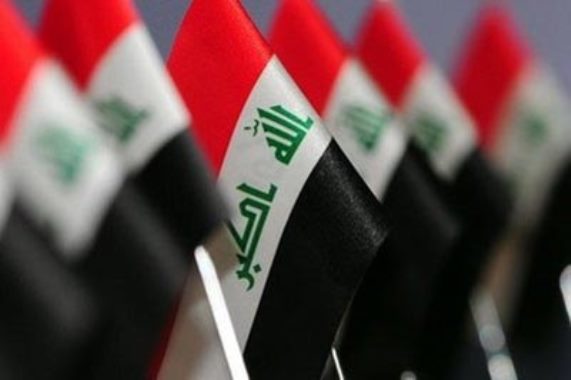Hopes for Iraq’s New Government
New York Times
10 سبتمبر 2014

The Iraqi Parliament put in place an important building block of an anti-ISIS strategy on Monday when it approved, in record time, a new power-sharing government led by Prime Minister Haider al-Abadi. Harder work lies ahead as Mr. Abadi, a member of the Shiite majority, tries to manage sectarian rivals in his cabinet and unify a fractured country, all while working with the United States to eliminate a mortal threat from marauding Sunni militants who occupy a huge swath of northern Iraq.
President Obama applied heavy pressure to prod the Iraqis to this point, making clear that a unity government was a condition for American military assistance against ISIS, or the Islamic State in Iraq and Syria. Nuri Kamal al-Maliki, the former prime minister, contributed significantly to the success of ISIS by favoring his Shiite brethren and alienating other communities. Mr. Abadi, who was named to replace Mr. Maliki on Aug. 14, is considered more of a consensus-builder. He has pledged “to work with all communities” and to find the money to help cities and provinces deliver services and to provide housing and education for more than a million Iraqis displaced by ISIS.
But while Americans and Europeans hailed the cabinet as inclusive, there were questions about whether it goes far enough. Two important and controversial positions, minsters of defense and interior, remain unfilled and could inspire more political warfare. Rather than parceling them out on a sectarian basis, Mr. Abadi would be wise to appoint the most competent people he can find at this moment of national peril. His decision to select three former top officials, including Mr. Maliki, for largely ceremonial vice president positions could either be a stroke of political genius or a misplaced gesture than can only compound tensions.
Among Mr. Abadi’s other challenges is to establish a national-guard-like organization designed to integrate Sunni tribes and local militias, like the pesh merga, into a more permanent provincial security structure. He also has to address Sunni grievances, like the release of detainees, and Kurdish complaints over oil exports and territory.
The dangers to Iraq are serious. The resumption of political infighting will only make them worse. Mr. Abadi has his work cut out for him.
 عن أمل جنبلاط المتجدد: لبنان يستحق النضال
عن أمل جنبلاط المتجدد: لبنان يستحق النضال
 صحافيون أم عرّافون!
صحافيون أم عرّافون!
 ماذا يجري داخل أروقة بيت الكتائب المركزي؟
ماذا يجري داخل أروقة بيت الكتائب المركزي؟


 عن الخرائط التي تُرسم والإتفاقات التي تتساقط!
عن الخرائط التي تُرسم والإتفاقات التي تتساقط!
 “الإنحراف في الحياة”/ بقلم كمال جنبلاط
“الإنحراف في الحياة”/ بقلم كمال جنبلاط
 هاشتاغ #صار_الوقت يحل أولاً في حلقة جنبلاط
هاشتاغ #صار_الوقت يحل أولاً في حلقة جنبلاط
 طاولة نقاش عن أزمة الصحافة في جامعة AUST
طاولة نقاش عن أزمة الصحافة في جامعة AUST
 عبدالله: ليظهر لنا وزير مكافحة الفساد حرصه في صفقات البواخر والفيول
عبدالله: ليظهر لنا وزير مكافحة الفساد حرصه في صفقات البواخر والفيول
 عبدالله: غريب أمر وزارة مكافحة الفساد!
عبدالله: غريب أمر وزارة مكافحة الفساد!

 Comment to Uri Avnery: How Sad What Is Looming Ahead
Comment to Uri Avnery: How Sad What Is Looming Ahead
 “Not Enough!”
“Not Enough!”
 … لمن لم يقرأ يوسف البعيني/ بقلم وسام شيّا
… لمن لم يقرأ يوسف البعيني/ بقلم وسام شيّا
 كمال جنبلاط في مولده الأول بعد المائة: تعاليمه وأفكاره ما زالت الحلّ/بقلم عزيز المتني
كمال جنبلاط في مولده الأول بعد المائة: تعاليمه وأفكاره ما زالت الحلّ/بقلم عزيز المتني
 رئيس حزب/ وليس (… سابقاً)/ بقلم د. خليل احمد خليل
رئيس حزب/ وليس (… سابقاً)/ بقلم د. خليل احمد خليل
 التوازن السياسي في لبنان
التوازن السياسي في لبنان
 لبنان… مشاريع انقلابية مؤجلة
لبنان… مشاريع انقلابية مؤجلة
 جنبلاط وحَمَلة أختام الكاوتشوك
جنبلاط وحَمَلة أختام الكاوتشوك
 Le Liban est un symbole de tolérance
Le Liban est un symbole de tolérance
 Our Automated Future
Our Automated Future
 The True Origins of ISIS
The True Origins of ISIS
 Les Misérables vs. Macron
Les Misérables vs. Macron
 عذراً أيها المعلم/ بقلم مهج شعبان
عذراً أيها المعلم/ بقلم مهج شعبان
 رساله الى المعلم / بقلم ابو عاصم
رساله الى المعلم / بقلم ابو عاصم
 إلى روح القائد والمعلم كمال جنبلاط/ بقلم أنور الدبيسي
إلى روح القائد والمعلم كمال جنبلاط/ بقلم أنور الدبيسي
 أسرار وعناوين الصحف ليوم الجمعة 14 كانون الاول 2018
أسرار وعناوين الصحف ليوم الجمعة 14 كانون الاول 2018














